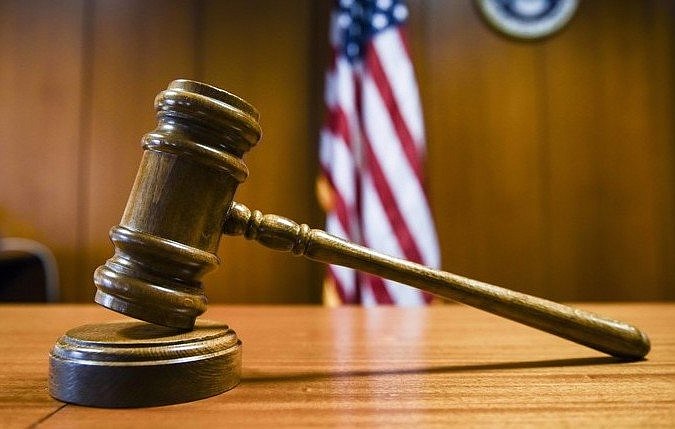FAYETTEVILLE -- The CEO of a company that proposed a failed wind farm in Elm Springs appeared to be plagued with memory loss and tried to shift blame to others for bilking investors in his federal fraud trial Wednesday.
Jody Davis and Phillip Vincent Ridings are charged with multiple counts of wire fraud, aiding and abetting wire fraud, money laundering, and aiding and abetting money laundering. Both men entered not guilty pleas.
Davis waived his right not to testify and took the stand in his own defense.
Prosecutors hammered Davis on cross examination, accusing him of repeatedly lying to investors, sending fraudulent documents and splitting investors' money with Ridings, Cody Fell and other associates who then used the money for all sorts of personal expenses, including cars, food, jewelry, vacations and a down payment on a house.
"It was not an intentional lie," Davis said several times during his testimony.
"I don't know," was Davis' go-to answer to questions from prosecutors.
Davis said things started going downhill after his brother-in-law -- Fell -- bought land for the wind farm and started making promises he couldn't keep. Davis said he told Fell not to buy the property.
"I hate it, hate it, that anybody lost money on this," Davis said. "I tried hard to do the right thing, but it didn't work. I would pay them back and take the loss myself if I could."
Fell of Springdale, a contractor and principal in the firm, pleaded guilty to federal wire-fraud and tax-evasion charges in December 2018. Fell agreed to cooperate with the government and testified earlier in the week he was given more than $100,000 of investors' money by Davis and Ridings. Fell hasn't been sentenced.
Davis pleaded guilty in 2009 to wire fraud and money laundering after embezzling about $785,000 in Oklahoma and said he still owes restitution in that case.
Davis said at one point he felt entitled to take the investors' money because he was working so much for Dragonfly and wasn't getting paid a salary. Other times, he told jurors investors knew he and Ridings were using the money to live off of, despite testimony from those investors to the contrary.
Davis said Ridings promised him $200,000 a year to be CEO.
"I lived and breathed it for four years, Davis said. "I felt like I had earned that money from Dragonfly."
Davis admitted cashing a check made out to Dragonfly by an investor Fell lied to about needing money to pay engineers work on the turbine. The work wasn't being done. Rather than calling the investor before cashing the check, Davis said he and Fell split the proceeds.
"There was no intention of fraud on my part," Davis said. "I was not responsible for that."
Davis said he had also "lost a lot" in the fall of Dragonfly.
"You lost it because you got caught and somebody went to the FBI," Kenny Elser, deputy U.S. Attorney, shot back.
Davis maintained he didn't believe he was lying to investors but, rather, he was just telling them what he had been told by Ridings.
"I had no reason not to believe anything Phillip was telling me," Davis said. "The things I told them, I believed."
Davis said he never really understood the technology involved and would have Ridings explain things to him when he was asked questions.
Davis also said Ridings was reluctant to share the technology with others, even people they hired to work on projects.
"He didn't want anybody to see the trade secrets," Davis said. "He would never give them the whole thing."
Davis said he still believes Ridings' wind turbine would work, despite several engineers saying it wasn't feasible.
"Do I believe it can work and make large amounts of power? I do believe that," Davis said.
Looking ahead, Ridings said he plans to testify this morning. Both sides will then present closing arguments, and the case will go to the jury.
More News
Closing argument
The lawyer’s final opportunity in a trial to tell the judge and/or jury why they should win the case. In a criminal case, that means a closing argument will be made by the prosecutor and by defense counsel, the lawyer representing the person being accused of committing the crime. Federal Rules of Criminal Procedure require the prosecution to open the closing argument after the closing of the evidence. The defense replies, and the prosecution may offer a rebuttal.
Source: Staff report

